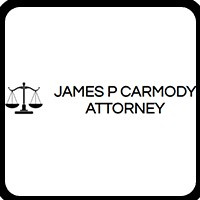Amonate Credit & Debt Lawyer, Virginia
Not enough matches for Amonate Credit & Debt lawyer.
Below are all Amonate Bankruptcy & Debt lawyers.
James P Carmody
✓ VERIFIEDBankruptcy, Family Law, Credit & Debt
Since 1976, Mr. Carmody has provided outstanding legal services for bankruptcy, divorce, custody issues, and adoption proceedings to clients in the gr... (more)
Eric Wagaman Reecher
Education, Labor Law, Insurance, Credit & Debt
Status: In Good Standing Licensed: 27 Years
Mark Louis Esposito
Construction, Litigation, Natural Resources, Credit & Debt
Status: In Good Standing
Mark Louis Esposito
Construction, Litigation, Natural Resources, Credit & Debt
Status: In Good Standing Licensed: 22 Years
Robert Tayloe Copeland
Commercial Real Estate, Real Estate, Corporate, Bankruptcy & Debt
Status: In Good Standing
Robert Tayloe Copeland
Commercial Real Estate, Real Estate, Bankruptcy & Debt
Status: In Good Standing


